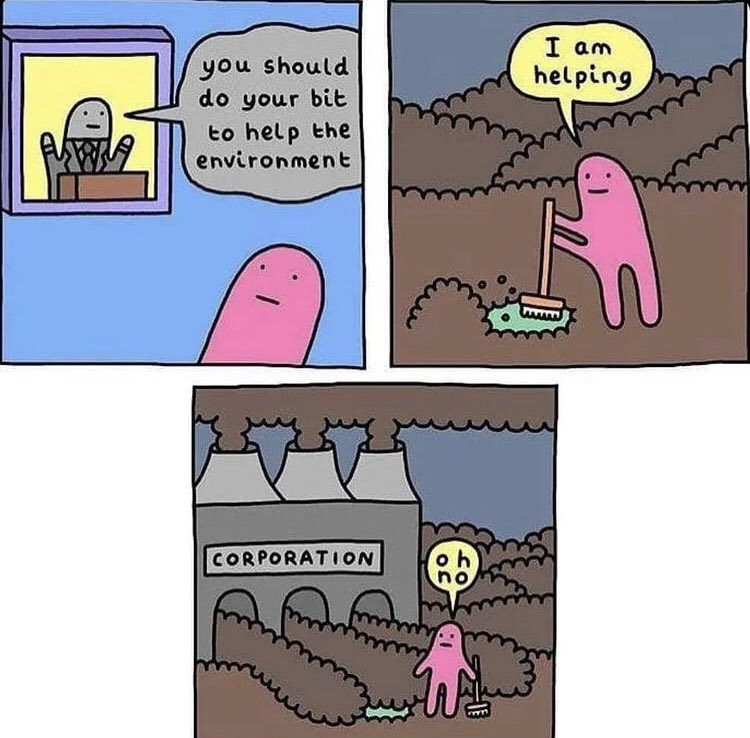More than a half-century after the first Earth Day, the environment is near a tipping point of collapse. All of us must be a part of the solution, which includes, in part, abolishing corporate constitutional rights and big money in elections, but must include much more.
Today is Earth Day -- the 52nd Anniversary of what is considered the birth of the modern environmental movement.

An estimated 20 million people took part across the US on April 22, 1970, in marches, rallies, teach-ins and other public events, sparked by a growing concern of environmental deterioration and destruction. The movement led to the creation of the U.S. Environmental Protection Agency (EPA) and the passage of the Clean Air Act, the Clean Water Act, and the Endangered Species Act. It was a testament to the power of people organized in an independent grassroots movement demanding change.
Unfortunately, despite the incredible efforts of so many people over the past 52 years to protect the environment, the earth and what remains of its incredibly diverse life forms are far less healthy than in 1970. Fossil fuel burning, pesticides, radioactive leaks, air pollution, oil spills, deforestation, fracking, urban expansion, water pollution, mountaintop removal and scores of other human activities are destroying farms, oceans, air quality, wildernesses, biodiversity, and the planet’s climate. The result has been mass extinction of many species and among humans, disproportionate harm to people of color, the poor, indigenous communities and the elderly and sick.
The reality is that most of the above have been the consequences of corporate actions toward people, communities and the natural world with the goal of profit maximization -- which in most cases have been not only legal, but sanctioned, if not subsidized, by governments. This has been coupled with the creation of a corporate culture of insatiable never-ending wants of material things that can never be satisfied since wealth, success, and personal well-being is defined by the amount of “stuff” we possess -- whether we can afford it or not.
Corporate entities remain a major cause of environmental destruction, shielded by constitutional “rights” that allow them to influence public officials through campaign donations/investments, claims that withholding pre-knowledge documents that burning fossil fuels is their right “not to speak,” and a deterrent that any policies forcing fossil fuels to be left in the ground will be a violation of corporate “takings rights without just compensation” that could amount to the trillions of dollars.
A more powerful, inclusive and strategic environmental movement is needed today than in 1970. We all must be involved in this movement because everything else is predicated on having a world livable for humans and all other life forms. Movement participants must not be afraid to be involved in every dimension of change-making: from elections, to lobbying, to symbolic protesting, to resistance via civil disobedience, to creating alternative sustainable projects, to fundamental system change, which includes the We the People Amendment, but much more that addresses the very heart of what a political and economic democracy looks like that is just and inclusive to all and in accord with the natural regenerative earth cycle.
Here are a few actions to mark Earth Day:
- Watch "New Normal" Needs a New Constitutional Amendment - video
- Participate in one or more environmentally-friendly activities in your community (safely of course) -- from community trash pickup to other service projects. Check out your local community or environmental group for activities.
- Take stock/reflect on ways you can change your own lifestyle to “live simply so that others can simply live” and the planet can simply survive. How can you reduce your material needs (which in many cases we become servants by having to clean, upkeep, repair, etc.) and by doing so have more time to spend life living.
- Become more active in environmental groups that are working on systemic change, not merely “greenwashed” minor changes. The key question to ask in determining this: “Is this change going to not only improve the environment in some significant way but also change the balance of power away from corporation entities and toward people.”
- Become more active in Move to Amend. Sign the petition or Volunteer (if you’re not one already). Donate.
We’re all in this together!
